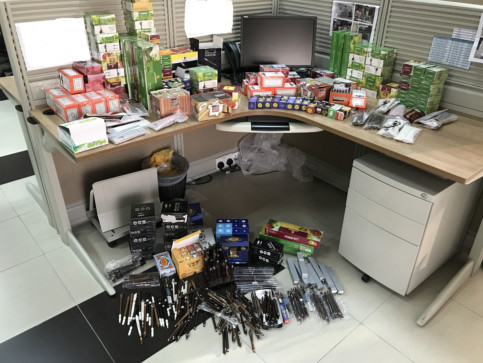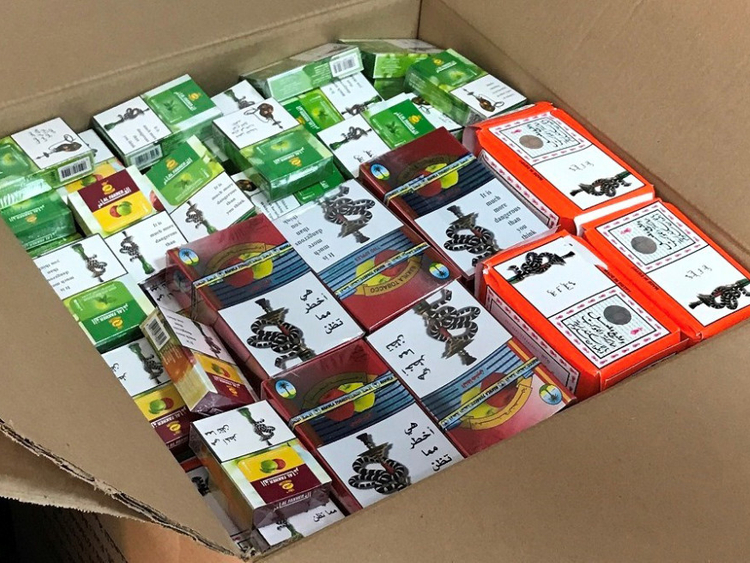
Abu Dhabi: More than 3,520 tobacco accessories and alternative tobacco products have recently been found on sale across groceries in the suburbs of the capital, in direct violation of the countrywide ban on such sales in groceries, the Municipality of Abu Dhabi City said on Sunday.
Experts speaking to Gulf News said this kind of accessibility is a key contributor to the widespread use of alternative tobacco products among youth in the UAE.
“Numerous studies have clearly demonstrated that easy access increases all kinds of tobacco consumption. And it is one of the main reasons why the majority of people we encounter who suffer from tobacco addiction have smoked midwakh, a traditional pipe that burns a variety of loose, dry tobacco known as dokha,” Dr Shamil Wanigaratne, consultant clinical psychologist the National Rehabilitation Centre (NRC), told Gulf News. The NRC offers treatment and counselling to Emirati addicts in Abu Dhabi.
The items recently discovered and confiscated by the Municipality from groceries included 230 tobacco pipes or midwakh, 415 cans of sheesha molasses, 165 cans of dokha, 1,450 packs of rolling paper, 105 tobacco pipe butts and 1,160 pipe cleaner sticks.
Groceries in the capital are not licensed to sell any tobacco products other than cigarettes. In fact, alternative tobacco products and accessories can only be sold at outlets designated solely for tobacco sales. Yet, according to the Municipality, the large variety and number of tobacco accessories and alternative tobacco products were discovered on sale in 37 groceries in Bani Yas, Al Wathba, Al Shamkha and Shawamekh areas.
In a 2012 study conducted by UAE University that surveyed more than 170,400 Emirati adults had found that midwakh smoking is the second commonest form of tobacco use in Abu Dhabi, and was reported by 15 per cent of participants. Midwakh smokers were also found to be relatively younger, and they had started smoking at an earlier age compared to smokers who use other types of tobacco. The study reported that smoking midwakh is cheaper than cigarettes, as a week’s supply costs just Dh11 compared to Dh77 for the average cigarette smoker.
Dr Wanigaratne, who is also an adviser to Dr Hamad Al Ghaferi, director of the NRC, said that midwakh is often considered to be more culturally acceptable among youth.
“Moreover, it is a real concern if groceries are found selling it, as these smaller stores have fewer controls and younger buyers can even pressurise staff to acquire the tobacco,” he explained.
Dr Raghib Ali, director at the New York University Abu Dhabi’s Public Health Research Centre, said all kinds of tobacco sales in the UAE should be subjected to the same kind of restrictions as alcohol.
“Tobacco use is the top contributor to preventable deaths worldwide, and that is why it would be best if corner stores and groceries simply did not sell any kind of tobacco, including cigarettes,” Dr Ali said.
The Municipality also warned shopkeepers and grocers to refrain from illegally selling alternative tobacco products, and added that it would continue regular checks to ensure that that UAE’s anti-tobacco laws are respected.
The UAE has already introduced the Federal Law No 15 of 2009 on Tobacco Control, and the country’s national agenda also aims to reduce smoking from 21 per cent of the adult population to 15 per cent by 2021.













